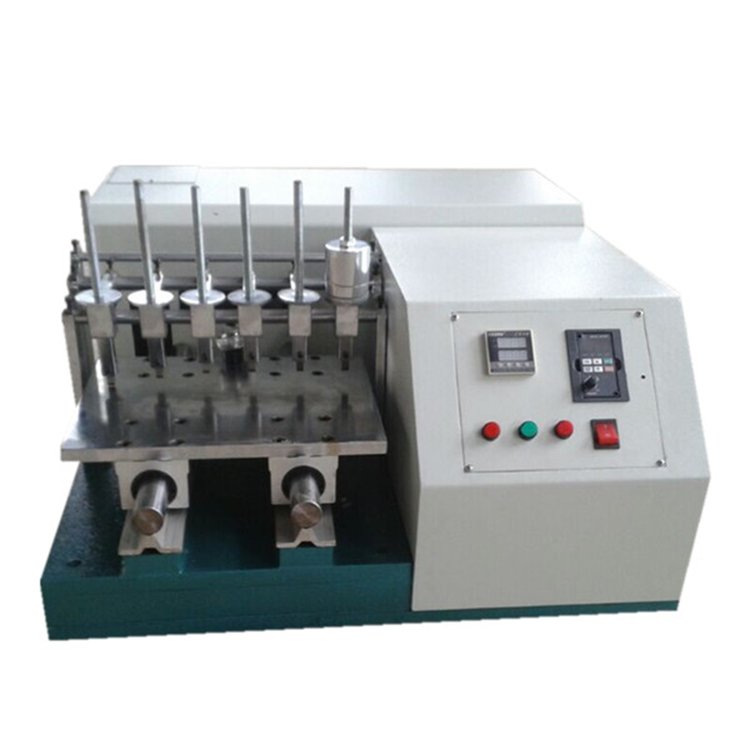Time: Popularity:0times
Applicable Standards:
The machine adheres to standards such as ASTM D3806 (Rubber Property—Abrasion Resistance), ISO 6945 (Rubber-Coated Fabrics—Abrasion Resistance), and SAE J300 (Automotive Hose Testing). It also supports custom protocols for specialized applications.
Main Parameters (Table 1):
| Parameter | Range/Specification |
|---|---|
| Test Speed | 10–200 rpm (adjustable) |
| Abrasion Load | 5–50 N (customizable) |
| Sandpaper Grit | 60–1000# (replaceable) |
| Sample Diameter | 10–50 mm (standard) |
| Counter Accuracy | ±1 cycle |
| Power Supply | 220V/50Hz or 110V/60Hz |
Working Principle:
The tester uses a rotating abrasive wheel (e.g., sandpaper) to apply controlled friction to the hose coating. A specimen is clamped horizontally and subjected to reciprocating or circular motion against the abrasive surface. The load and speed are preset via a digital controller, while a counter records cycles until coating failure (e.g., exposure of base material).

Test Principle:
Abrasion resistance is quantified by measuring the weight loss or thickness reduction of the coating after a defined number of cycles. The machine calculates the abrasion index (volume loss per unit distance) to compare material performance. Advanced models integrate laser sensors for real-time thickness monitoring, enhancing precision.
Applications:
Widely used in R&D and manufacturing of hydraulic hoses, fuel lines, and industrial hoses, this tester ensures compliance with safety standards and extends product lifespan by optimizing coating formulations.
Company Phone
+86-21-6420 0566
Working hours
Monday to Friday
Mobile phone:
13816217984
Email:
info@qinsun-lab.com
